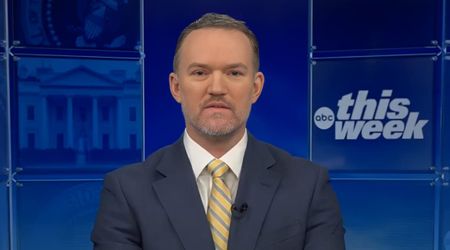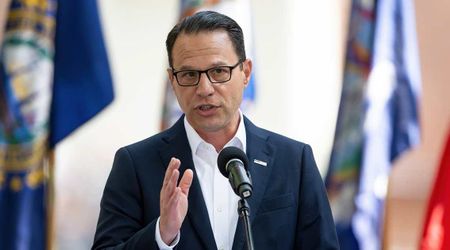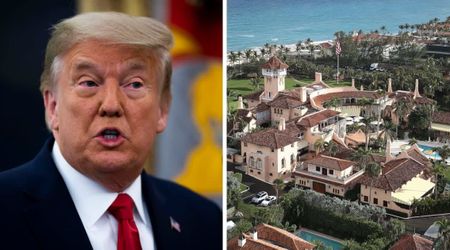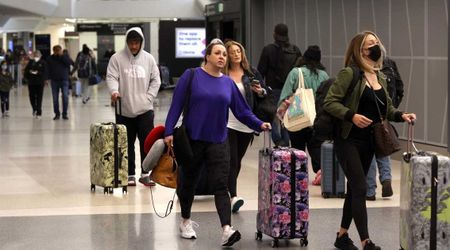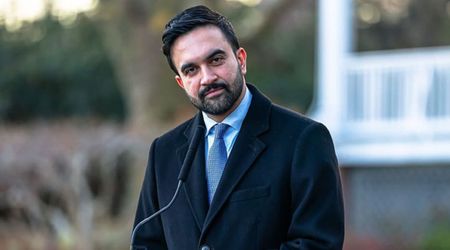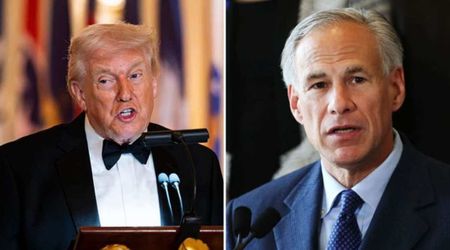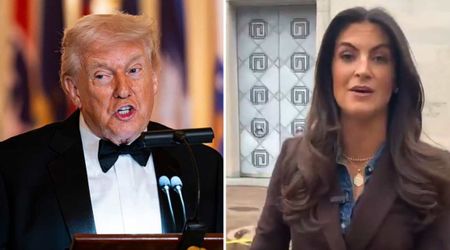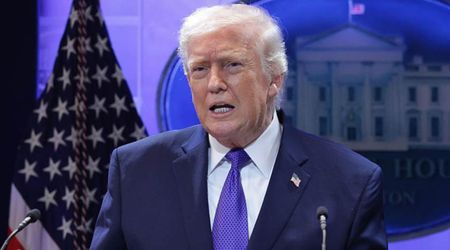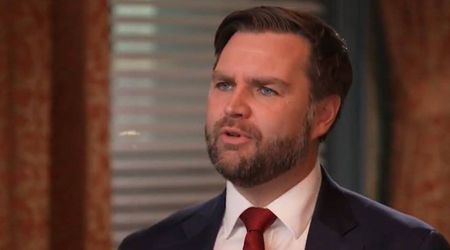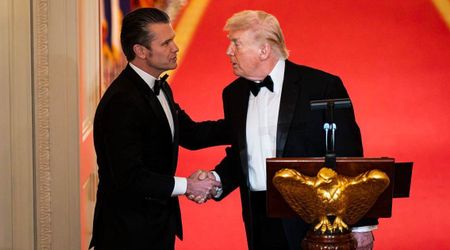Trump Trial: From opening statements to jury deliberation, a look at all the steps from start to finish
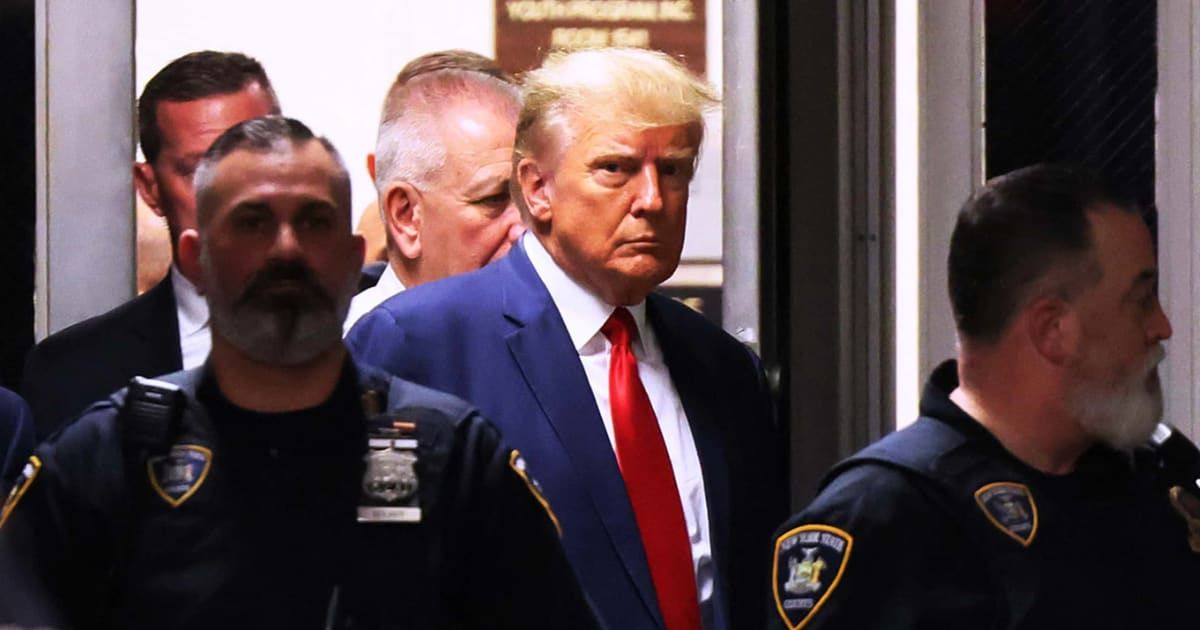
Here's how Donald Trump's hush money trial is set to proceed

Former President Donald Trump is embarking on his first criminal trial, commencing on Monday, April 15. The trial, anticipated to span six to eight weeks in its entirety, starts with the meticulous process of jury selection. Trump's legal saga pertains to a payment made to Stormy Daniels ahead of the 2016 election to stay silent about their alleged affair. The hush money case is the first of four ongoing criminal cases scheduled to go to trial for the White House hopeful. To better comprehend the unfolding proceedings, here are the steps of a criminal trial:
1. Jury call

On April 15, hundreds of potential jurors residing in New York County are summoned to appear at Manhattan Criminal Court for jury duty in the high-profile criminal trial. Ultimately, the pool is whittled down to 12 jurors plus a few alternates.
2. Voir dire

At this stage of the trial, the judge and attorneys engage in a meticulous process of questioning prospective jurors about their backgrounds and beliefs. This interrogation aims to ascertain their capacity to render fair and impartial judgments. If the judge identifies a valid reason that renders a prospective juror unfit for service, they can be dismissed for cause. Additionally, both sides of the legal proceedings possess peremptory strikes, granting them the authority to remove potential jurors from the panel without having to provide a specific justification, as per CNN.
3. Jurors sworn in

After the jurors and alternate jurors are chosen, they are administered an oath, committing to adjudicate the case with fairness and impartiality. Following this solemn pledge, the judge issues stringent instructions, prohibiting jurors from engaging with media coverage of the trial or conversing about the case with anyone, including fellow jurors, until deliberations are initiated. These directives are aimed at ensuring that the jury's decision is based solely on the evidence presented in court.
4. Opening statements

During this phase of the trial, attorneys representing both the prosecution and the defense outline their respective theories of the case and present an overview of the charges. They offer a preview of the evidence they intend to present to the jury, including witness testimonies and exhibits. It's essential to note that the opening statements delivered by the attorneys do not constitute evidence for the jurors to consider. Instead, they serve as a roadmap, providing context and framing the narrative for the trial proceedings.
5. Prosecution’s case

Throughout the trial, prosecutors will present evidence through witness testimonies and exhibits, aiming to substantiate their case against the defendant. Moreover, during the presentation of evidence, defense attorneys have the opportunity to cross-examine the prosecution's witnesses. Through rigorous questioning, they often seek to challenge the credibility or reliability of the testimony offered by these witnesses. It's important to note that while witnesses' responses are considered evidence, the questions posed by attorneys are not.
6. Defendant’s case

In a criminal trial, the defendant has the option to present a defense, but they are not obligated to do so. In Trump's case, it's anticipated that he will call at least one witness to support his defense. However, Trump himself is not required to testify, as all defendants have the right to remain silent and decline to take the stand in their own defense. Importantly, the jury is instructed not to interpret the defendant's decision not to testify as an indication of guilt or innocence.
7. Prosecution’s rebuttal case

During the trial, prosecutors are able to present additional evidence designed to counter the arguments put forth by the defense. This evidence is specifically tailored to address the defense's case and can be used to strengthen the prosecution's position. However, the prosecution is not obligated to present any rebuttal evidence.
8. Closing arguments

In the final stages of the trial, both the prosecution and defense deliver closing arguments, aiming to persuade the jury before they begin to deliberate on the case. Prosecutors, having the burden of proof, present first, followed by the defense. The prosecution then has a chance for rebuttal after the defense's closing.
9. Jury instruction

Before the jury begins their deliberations, the judge provides them with instructions regarding the charges against the defendant and the legal principles that should guide their decision-making process. These instructions outline the specific laws applicable to the case and clarify the elements that the prosecution must prove beyond a reasonable doubt for each charge. It's a crucial moment where the jury receives guidance on how to apply the law to the evidence presented during the trial.
10. Jury deliberation

During deliberations, jurors carefully assess the evidence presented during the trial and the charges against the defendant. Their decision must be unanimous, meaning all 12 jurors must agree on a verdict. The panel is provided with all the evidence admitted during the trial and may request to review specific witness testimonies by having them read back. Additionally, jurors can communicate with the court and ask questions about the case through handwritten notes. When a question is posed by the jury, the parties convene to determine the most appropriate response. At the outset of deliberations, alternate jurors may be dismissed or kept under oath and sequestered, ready to replace a juror on the main panel if necessary.
11. Verdict

Once the jury reaches a verdict, they inform the court of their decision. It's then read aloud in court, and each juror is individually polled to confirm that the announced verdict aligns with their own vote. However, if the jury finds themselves deadlocked during deliberations, indicating an inability to reach a unanimous decision, the judge may instruct them to continue deliberating in pursuit of a consensus. This encouragement can occur at least once in an attempt to resolve the deadlock. In the event that the jury remains stalled and unable to reach a unanimous verdict, the judge may declare a mistrial, also known as a hung jury.
12. Sentencing

Upon reaching a guilty verdict, the judge proceeds to sentence the defendant. This typically occurs following a sentencing hearing, which may take place at a later date. During the sentencing hearing, the judge considers various factors, including the nature of the crime, the defendant's criminal history, and any mitigating or aggravating circumstances presented by both the prosecution and the defense. Ultimately, the judge determines the appropriate punishment for the convicted individual.

